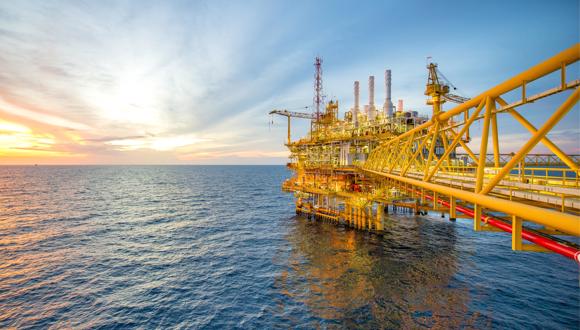Fri, 25 February, 2022
How to become an Oil and Gas Engineer: Use our MSc in Oil and Gas Engineering to gain a job within industry
Our Oil and Gas Engineering Masters has many great aspects that make it very well suited for those that working within the energy sector, but also undergraduates with career ambition.
Together with Brunel University London and TWI Ltd, we can offer a postgraduate course in Cambridge that is industry-focused.
That means to create our oil and gas programme and keep it up to date, we consult industry to find out exactly what research is being called for, and where the demand is for skills, knowledge and training.
Our full-time programme based at the NSIRC facility at TWI Cambridge is particularly popular with students from around the world, who come to study in the UK and gain the essentials for working in the oil and gas sector of 2022 and beyond.
 The oil and gas industry's revival will be led by highly trained engineers with the ability to adapt quickly to the latest demands (alternatively conditions) and threats to oil and gas structures and their operating environment holistically.
The oil and gas industry's revival will be led by highly trained engineers with the ability to adapt quickly to the latest demands (alternatively conditions) and threats to oil and gas structures and their operating environment holistically.
8 Advantages of our Oil and Gas Engineering Degree
- Professional Development Ideal for Oil and Gas Management Careers - IMechE, IOM3, and The Welding Institute (TWI) accredited programme provides flexibility to support your career development via CEng registration.
- Bespoke Facilities That Support Students with Industry-Focused Experiments - Not accessible through the university alone, our on-site lab space at TWI is equipped with high-performance computing facilities to run high-fidelity and complex numerical simulations to support your dissertation project.
- Industry Standard Codes Training - Training in industry-standard codes including Simulia ABAQUS, MATLAB, Ansys CFD, Pipesim and Olga (Sclumberger).
- Rapidly Design and Commission Oilfield Installations, Including fabrication - design on and offshore structures to withstand internal loading induced by complex internal oil and gas flows and external loads, such as waves and wind. As design and build priorities change, so does the way engineers need to be able to adapt, managing risk alongside health and safety requirements
- Develop Systems Level Thinking Skills around Structure and Environment - Gain vital project management knowledge to address a wide range of complex problems.
- Special Training for Oil and Gas Engineers - Provides highly specific training in numerical, testing and inspection techniques
- Advanced Understanding of Codes of Practice - Including installation and construction aspects.
- Enhanced Expertise in Multi-Phase Flow and Flow Assurance
To find out more about our programme, visit the course page. From there you can read about some of the key modules, teaching guides, fees and application requirements.
The programme has strong international student interest and regularly welcomes graduates from around the world. Visit the program page to discover more and read the course requirements.
Find out more about a range of topics, including our new Lightweight Structures and Impact Engineering MSc, Oil and Gas related PhD topics, tuition fee and English Language requirements. All this information can be found on our website.